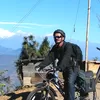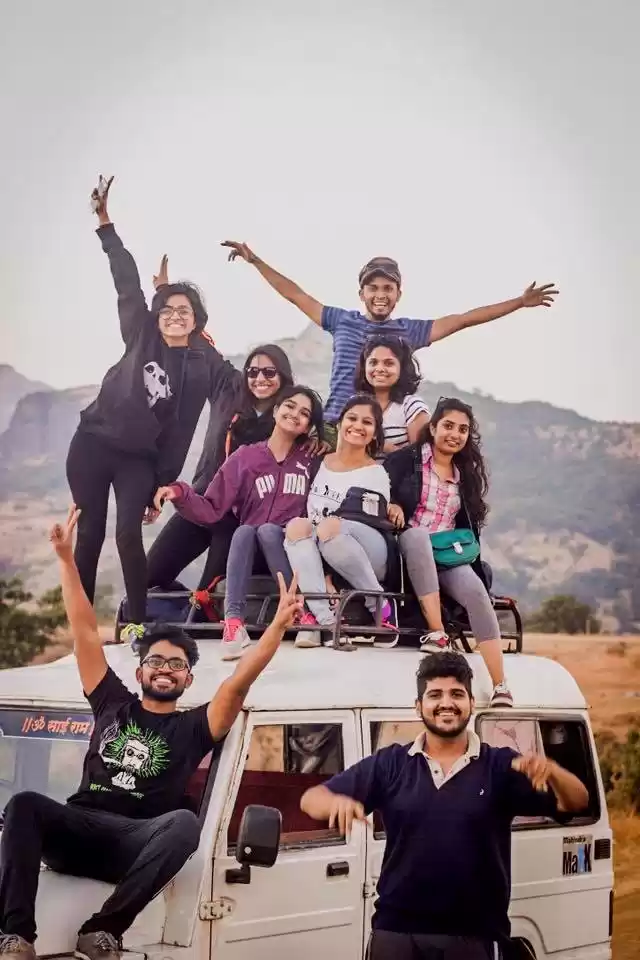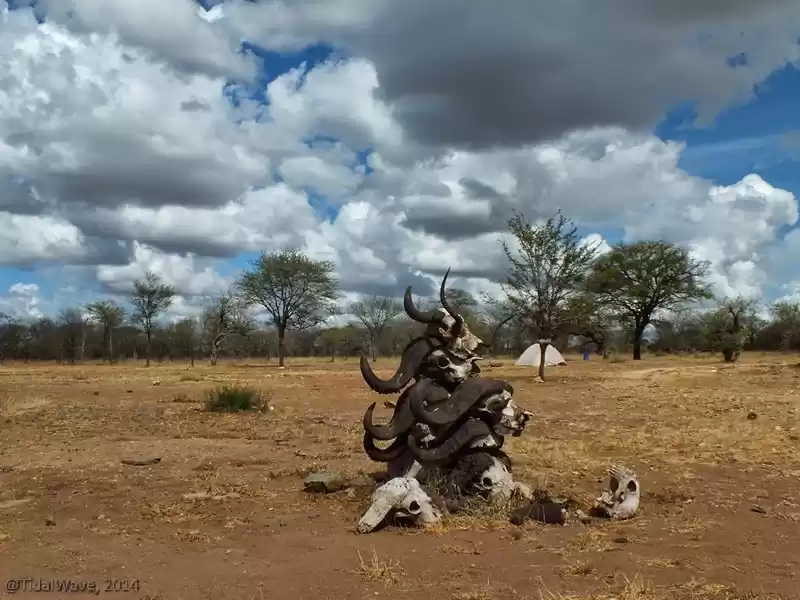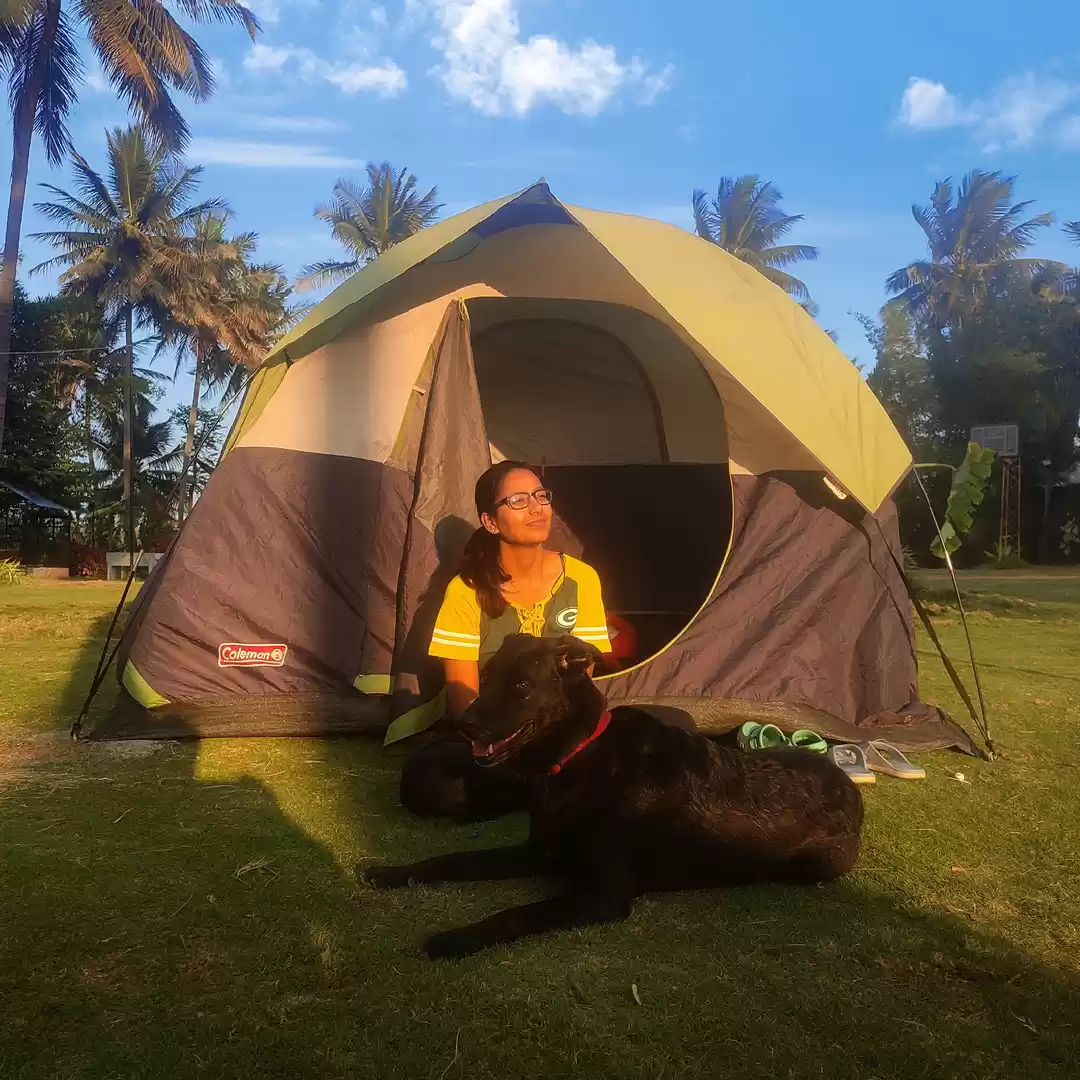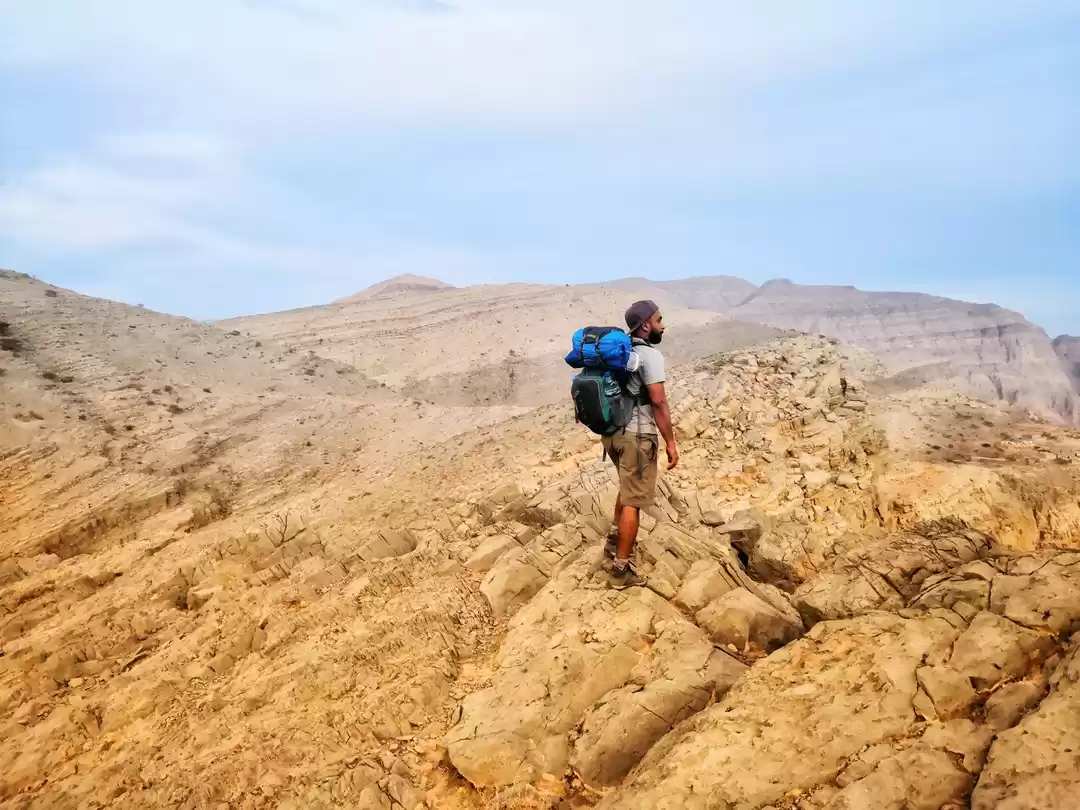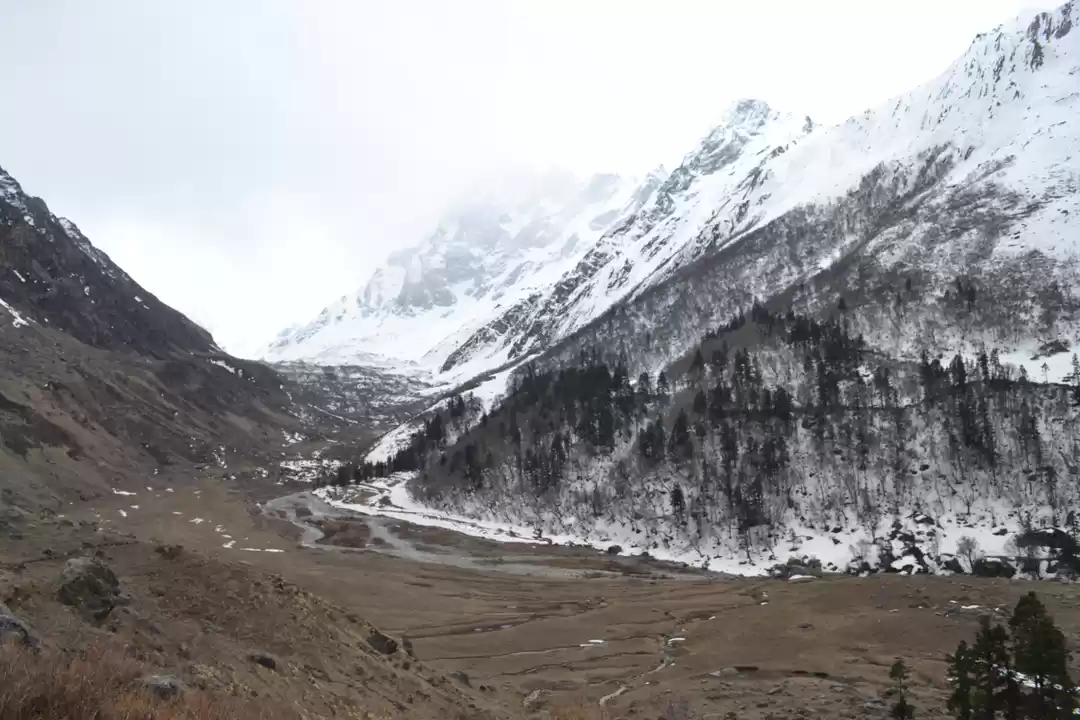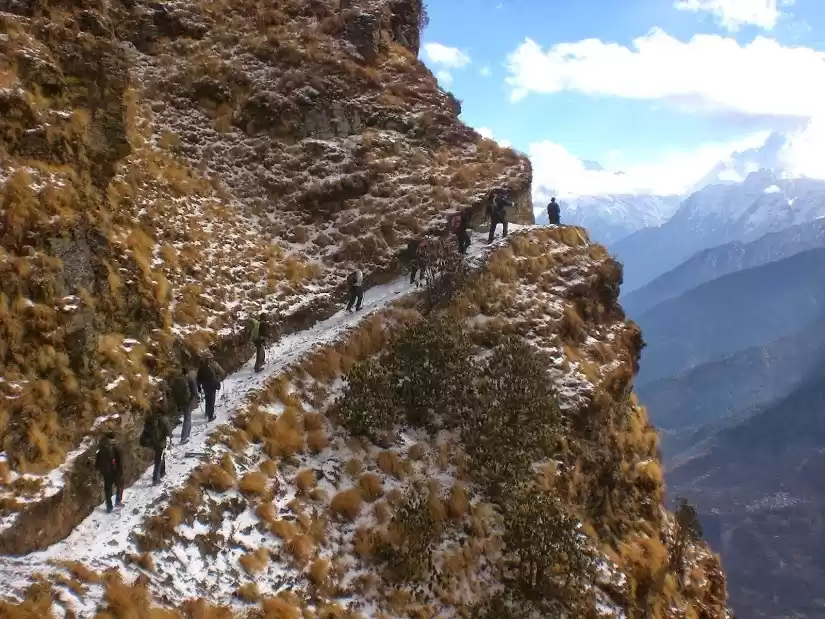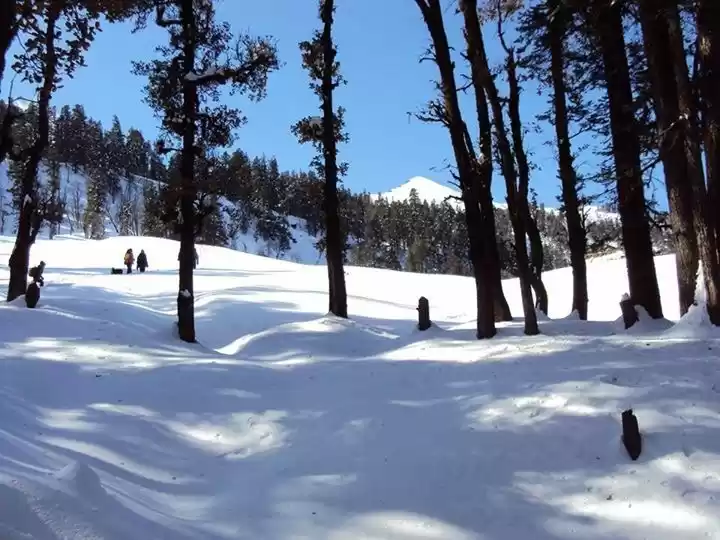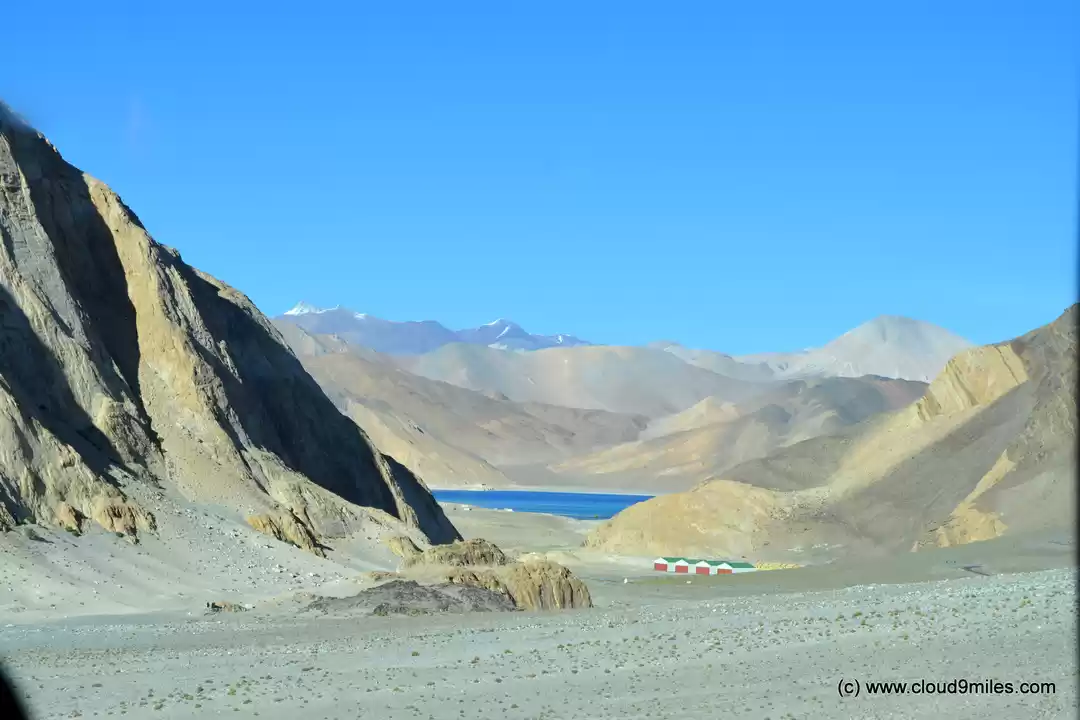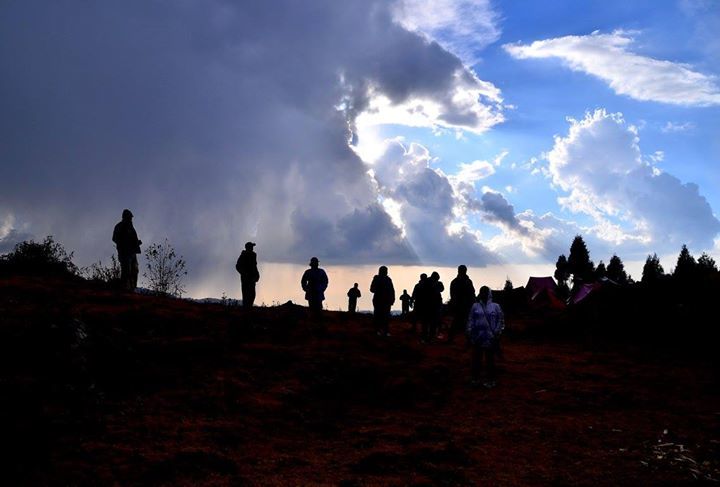
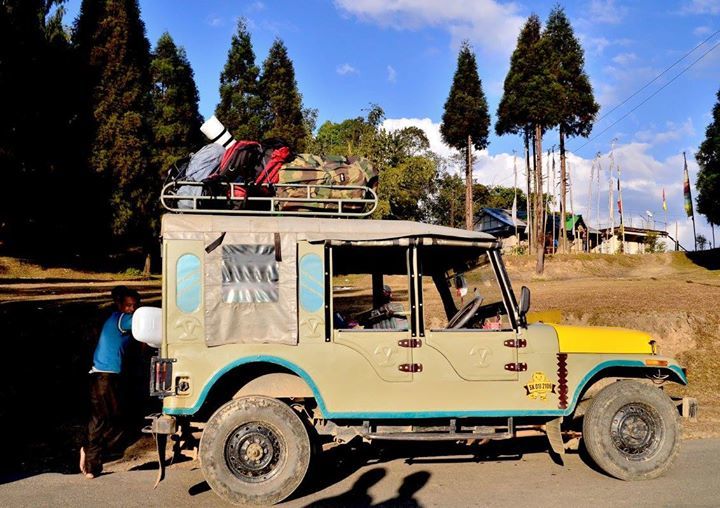
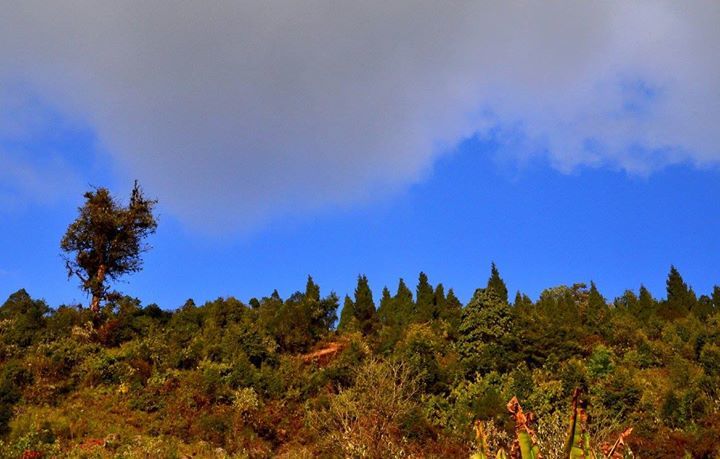
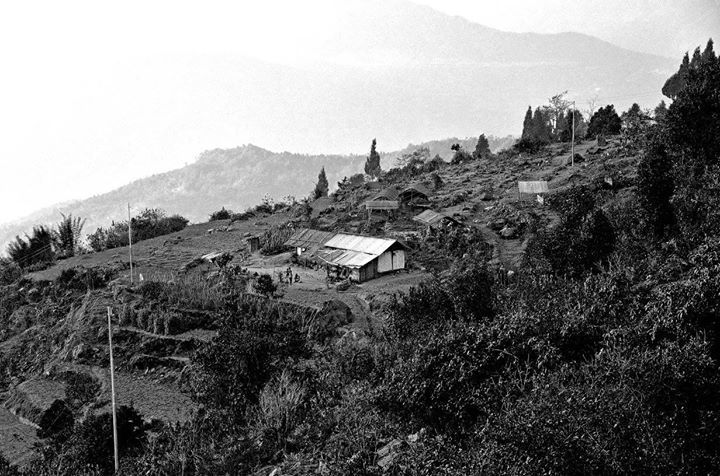
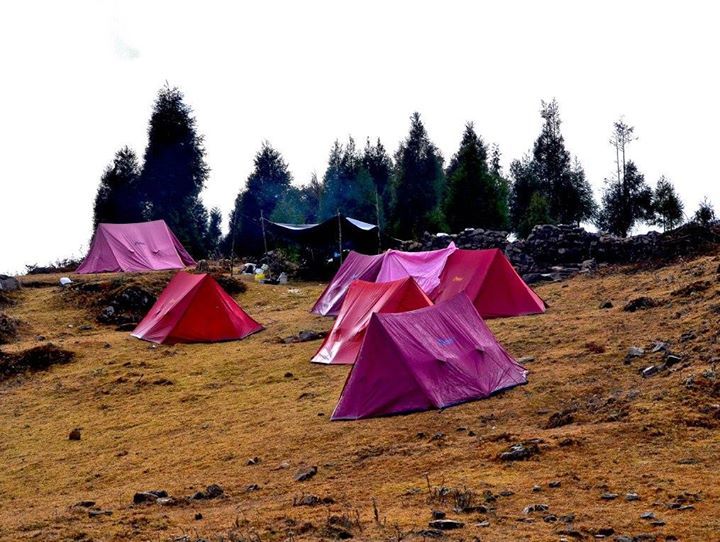
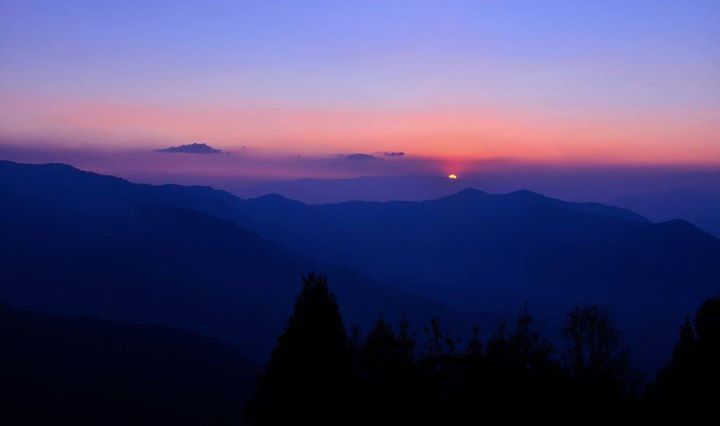
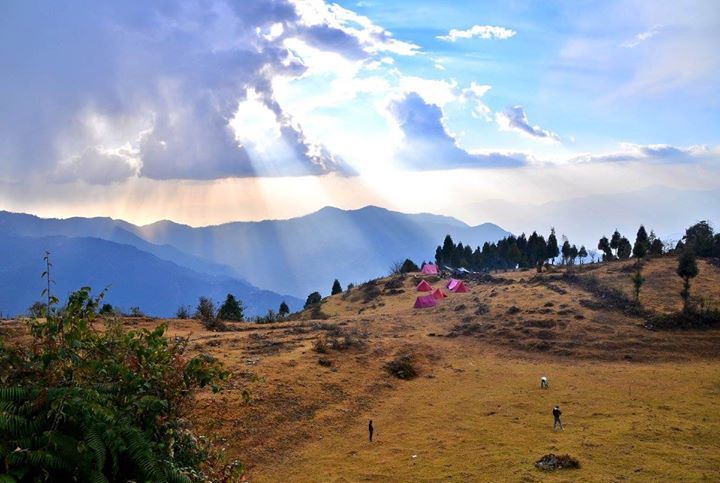
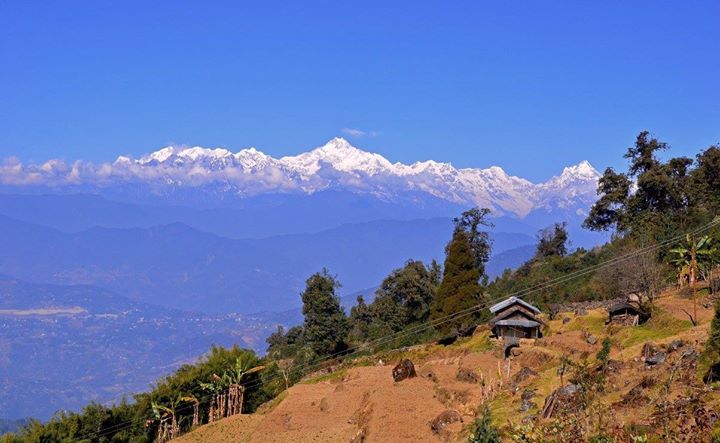
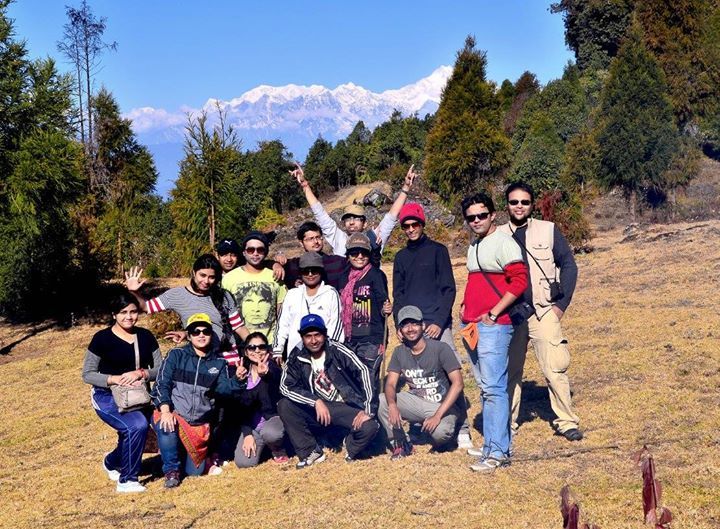
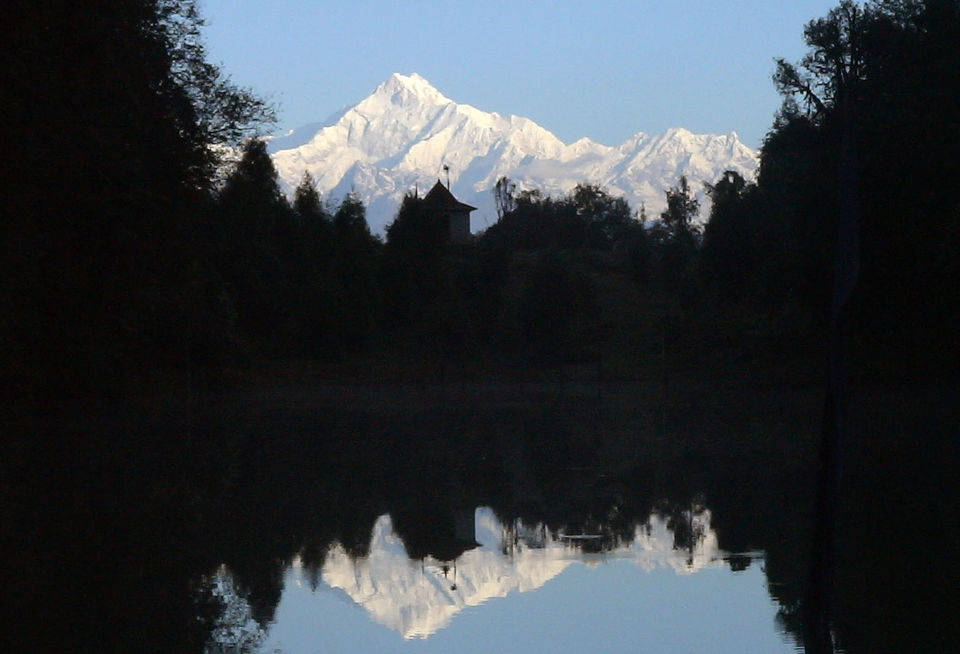
The tragedy of spending a majority of the time on a 3 X 3 cubicle is that, we forget to explore the friends amongst us. So, though we might belong to the same organization, we tend to behave like strangers. However, a small trip can prove to be magical to bridge the gap that we have between us….
Mulpokhri (aka Mulpokhari), a fantastic camping ground near Aritar, East Sikkim, was our destination. It was an extended weekend trek program. The team was charged up and for many, including me, it was our first time trek. Our bus was waiting at the New Jalpaiguri station. We were given a pouch bag in which, we were asked to collect the garbage instead of littering here and there in the jungle – the concept, we liked very much. We barely knew each other before and slowly started getting accustomed to each other. We had breakfast at 29th Mile, just next to the emeral green Teesta river. We all were very happy and free spirited and left all our office woes behind. It was late afternoon when we reached Sherpa Monastery, few kilometers ahead of the Aritar Lake (East Sikkim). There were three cars waiting for us to take us till Mul Kharka village. While the luggages were getting shifted from the bus to the cars, we utilized the time to wander around that place and do some photo sessions. The road to Mulkharka was mostly made up of clay and stone – we were enjoying the bumpy ride as our car negotiated the hairpin bends, one after the other. Soon, our cars took us to the village and the last stretch, we had to walk. A cup of warm tree and lots of other welcome food were waiting for us – something, we indulged in without wasting much time. After having our refreshments, we retired into the rooms that were allocated to us, the typical wooden rooms we get to see in the Sikkimese villages, simple, yet cozy. The evening was special – we witnessed the magical twilight in awe as we witnessed the sun slowly setting over the horizon, spreading a riot of colors and pageantry. Soon, we realized that the mercury level was dripping fast, getting colder and colder with time. Our host Nima Daju had arranged for some cultural program and it was nice to see his daughter as well as his other family members, including his elderly mother dancing together to the tunes of some local music. The momentum was gradually gaining in and the music was too contaminating to resist was from matching a few steps of them. The influence of “Chhang” (locally brewed Sikkimese spirit) catalyzed our energy and vibes all the more. Though we barely knew each other in Kolkata earlier, we, by now, have started to develop a bonding of friendship. Little did we have any clue then that this bonding would last for a long long time. The time for dinner arrived. We were offered with a spread of Sikkimese traditional food – something, we hardly had any idea upon. We had no idea that the stingy nettle leaves can actually be consumed. That tasted bland, but we were told that they have a great medicinal value. After dinner, we decided not to waste much time as it was getting colder and colder and slipped into the cozy blanket of the warm wooden room.
The next morning we woke up quite early braving the cold as we were supposed to trek till Mul Pokhari. Mul Pokhari, other than being an amazing campsite and a birder’s paradise, also is a gateway to Neora Valley National Park, the last of the few remaining bio-diversities in our country and a UNESCO World Heritage Site. This pristine forest, still largely unexplored, offers protection to more than 31 species of mammals, 250 species of birds, 276 species of insects, and, 38 species of other invertebrates. Many of these are Red Listed according to IUCN. It houses a diverse variety of floras, many of which are extremely rare. We were excited as we were about to take part in the first trek of our life. We freshened ourselves, had our breakfast and were ready with our sacks. Four porter friends were there to accompany us till the campsite. They were to carry tents, rations, and most importantly, water, as we were told that drinking water was unavailable at Mulpokhri. Once again, we were impressed with the arrangement that Dirtboots did for us. The weather was blue and sunny with a tinge of cold in the air. It was almost 10 in the morning that we began our trek. The trail was flat in the beginning but gradually began to become steep. Since most of us were not accustomed to walking in an incline, we were feeling pain in our knees and started to feel breathless. We took rest for a while and again started to move on. We were getting a glimpse of the Kanchenzunga range at times, through the thick foliages of the jungle, playing a hide and seek game. Since the weather was bright and sunny, the mountain range was clearly visible. Finally, we reached Mulpokhri campsite, of course, after several breaks, numerous photo sessions and lots of dry food.
After we reached Mulpokhari campsite, we were given a demonstration on tent pitching, which, we thought was quite an easy task. We were distributed in a few groups and each of the group was handed over a tent. This was our first venture on tent pitching and none of us had stayed in a tent before. But, what seemed to be easy during the demonstration was not at all that easy when we actually started pitching the tent because of the strong wind that was blowing. Our tents were not getting snug – they were tilting one way or the other. All on a sudden, the weather changed drastically and what was dazzling blue a sky, turned overcast in a span of few minutes and soon, it started to rain. We didn’t bother much as we knew that adverse situations bring the best out of someone. We ignored the rain and continued to work on the tent pitching. Finally we succeeded – we erected our tents those were straight and taut. By that time, the rainfall also had stopped and the weather was cool and mild and blue once again. We were drenched in rain but the pride of accomplishment took over us. Lunch was ready by then. We had our lunch prepared by the porter friends who accompanied us. After lunch, resting for a while, we planned to walk towards the Neora jungle – the trail that leads to Reche La. Reche La is the highest point of the jungle, from where the trail trifurcates, one to West Bengal, one to Sikkim and the third one to Bhutan. Few amongst us decided to explore the area near the lake. We followed the uphill trail… from that height, our tents were looking very small in the vast valley.
Evening was nearing by – the birds were on their way home. There was absolute silence – no buses or cars, no pollution, far from the madding crowd and the only sound we could hear was the chirping of the homebound birds. It was an evening worth remembering. As the evening descended, we returned to our camp and had some coffee. That was our campfire night. Everyone has a role to play in a campfire. Soon, we realized that it was even colder than Mul Kharka owing to the vastness and openness of the valley. Many amongst us put another layer of warm clothings and still were shivering in cold. However, the nipping cold couldn’t dampen our spirits and instead of giving ourselves to the cold, we concentrated in extracting the warmth from the campfire and enjoy the thrill the surroundings had to offer us. It was an evening well spent singing and chatting, an evening, we should remember for a long long time. We were called for dinner soon. After dinner, we decided to roam around the vast ground. We hardly had any sign of tiredness. We braved the cold and went outside. It was new moon that night, pitch dark outside. Suddenly, my eyes were affixed to the sky above and I witnessed a sight I’ve never seen before. In that pitch dark cloudless night, the sky seemed to be decked up with innumerable stars – each prominently visible. Wherever our eyes went, we could see the sky bejeweled with stars and stars. I felt thankful to Mother Nature for providing me with the opportunity to feast my eyes like that. A distant village could be seen from there, shimmering in the dark. I would remember that night for a long long time.
The vast trees, the mysterious jungle, the Mulpokhri lake was creating a sense of illusion. I was feeling slightly eerie, also, considering the fact that there could be wild animals in the vicinity and we might be disturbing them in their sleep. We decided to return to our tent. The remnants of the campfire was still glowing then. I was planning to spend more time there but realized, we must wake up early in the morning to witness the sunrise. The ground was undulating and most of us were sleeping for the first time inside a tent. Needless to say, we felt asleep within a short span of time.
It was hardly 5 AM that most of us waked up from our sleep. I peeped through the tent, it was still dark outside. I called up my friends who were still sleeping as we had to prepare ourselves to witness the sunrise. We mustered enough courage to overcome our laze to come out of the warm sleeping bags and brave the cold outside. By the time we got ready to walk towards the lake, the hue of the dark outside was changing to a light shade of blue – morning was nearing by. The birds were chirping to welcome a brand new day. It was extremely cold and windy outside and gave me a feeling that probably we were better inside the tent. The overnight dew and water on the grass had frozen and the ground turned white. We walked towards the lake and what I witnessed after sometime is something that would remain etched in my mind forever – the golden light towards the eastward sky indicated that it was sunrise… The mighty Kanchenjunga was basking in a golden glow making a mirror reflection on the Mulpokhri lake. There was a mild breeze that was creating ripples on the water. The lofty trees were swaying as if, they too were acknowledging the beauty of the divine. All these made me forget of the cold. I felt myself to be fortunate to have witnessed such a magical act of nature. We returned to our tent shortly after as the time had come to bid farewell to the place. We dismantled our tents and packed our sacks. It didn’t take long to walk back to Mul Kharka where a warm breakfast was waiting for us. We gorged on that and conveyed our heartfelt thanks and gratitude to the villagers for their hospitality and support. They bade farewell with a “Khada” which is a silk scarf and a holy emblem for our good luck. With a heavy heart we left the village and its people and walked back to Sherpa Monastery where our bus was waiting for us to take us to NJP. There was no sign of tiredness among us and all of us were dancing and singing like crazy inside the bus… nothing could compare our enjoyment. We reached NJP by the evening and returned to Kolkata the next morning.
Though we were mere strangers at the beginning, we returned with pure friendship. This trip, though small, was good enough to provide a fresh lease of oxygen to our tired cells and rejuvenate our mind and body.

